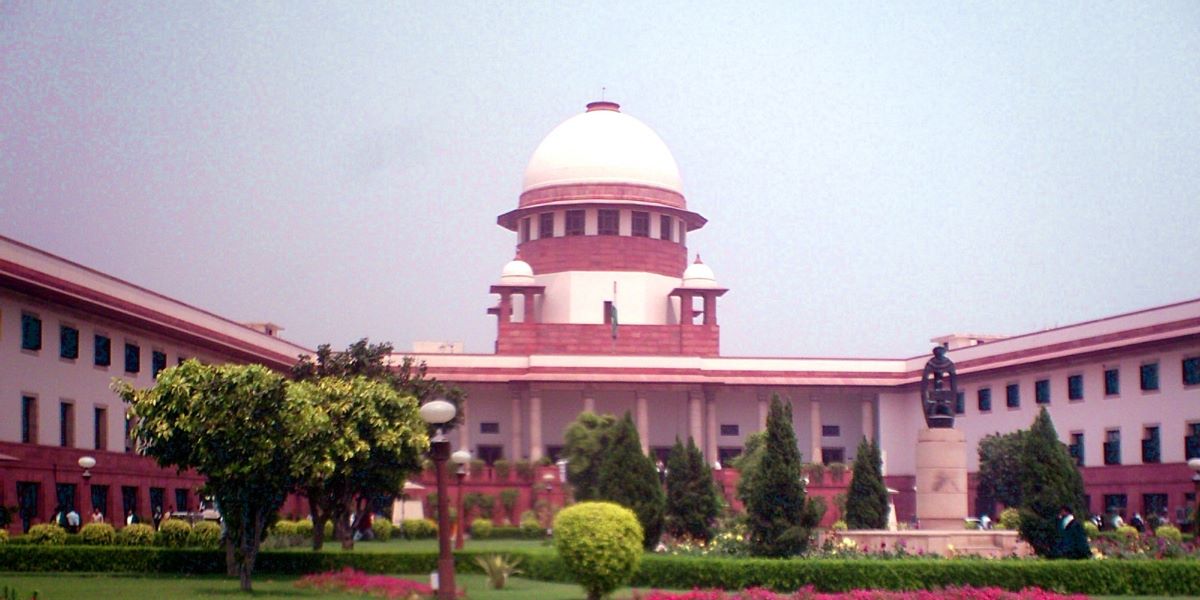OPS said that EPS could not be the AIADMK general secretary because the party chose Jayalalithaa as the “eternal” general secretary in 2017.

The Supreme Court Collegium has recommended the transfer of a total of 23 judges across various high courts. (Creative Commons)
Former Tamil Nadu Chief Minister Ottakarathevar Panneerselvam (OPS) told the Supreme Court on Thursday, 5 January, that the qualification for being the general sectary of the All-India Anna Dravida Munnetra Kazhagam (AIADMK) had been so tailored that only the leader of the rival faction — Edappadi K Palaniswamy (EPS) — could become the general secretary.
A bench of Justice Dinesh Maheshwari and Justice Hrishikesh Roy was told that only a person who served in the AIADMK headquarters for 10 years and was nominated and proposed by 10 district secretaries each was qualified to contest for the AIADMK general secretary post, and that EPS alone satisfied these eligibility criteria.
Resuming his arguments on the second day of the hearing of a batch of cross-petitions, senior advocate Ranjit Kumar, appearing for OPS, told the court that EPS could not have been the general secretary of the AIADMK because way back in 2017, when party rules were changed, it was incorporated that late chief minister and party supremo J Jayalalithaa would be the “eternal” general secretary, and this post was abolished thereafter.
In place of the general secretary, two positions — coordinator and joint coordinator — were created, which were shared between EPS and OPS.
The court was also told that when Jayalalithaa was declared the “eternal” general secretary, it was resolved that this position would remain unaltered.
However, at the 11 July, 2022, general council meeting, the position of general secretary was restored and EPS was made interim general secretary.
Ranjit Kumar also told the court that the general council meeting was unauthorised as it was convened by the Presidium Chairman and not by the coordinator (EPS) and joint-coordinator (OPS) as per the by-laws of the AIADMK.
The top court is hearing a batch of cross petitions in which the order of the division bench of the Madras High Court upholding the general council meeting has been challenged.
There are several other orders that are also being looked at by the top court.
Ranjit Kumar told the court that while electing EPS as the interim general secretary, the general council passed a resolution removing OPS and others belonging to his faction from all the organs of the party including from the primary membership.
The court was told that the resolution said party members and office-bearers were to have no communication with OPS or the members of his faction.
The AIADMK embarked on a dual-leadership arrangement between OPS and EPS after the passing of Jayalalithaa.
However, the EPS faction reversed it in the 11 July meeting by restoring unitary leadership in the party, breaking away from the dual-leadership arrangement, the senior advocate told the court.
Ranjit Kumar will continue his arguments on Friday, and lawyers appearing for EPS will also advance their arguments later in the day.
The bench indicated that it might conclude the hearing and reserve its order.

Jul 26, 2024

Jul 26, 2024

Jul 26, 2024

Jul 25, 2024

Jul 24, 2024

Jul 23, 2024